Jae H. Kim
DeepCQ+: Robust and Scalable Routing with Multi-Agent Deep Reinforcement Learning for Highly Dynamic Networks
Nov 29, 2021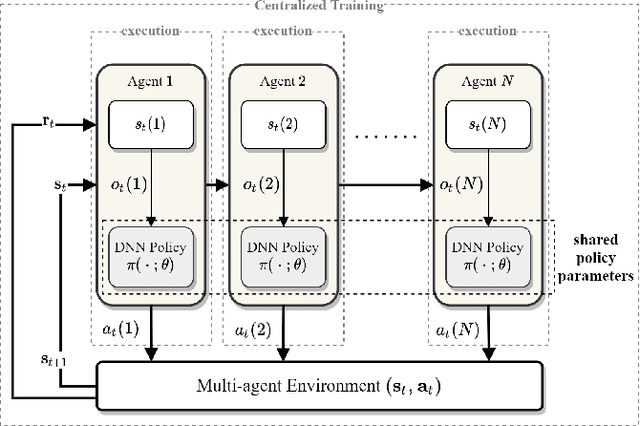
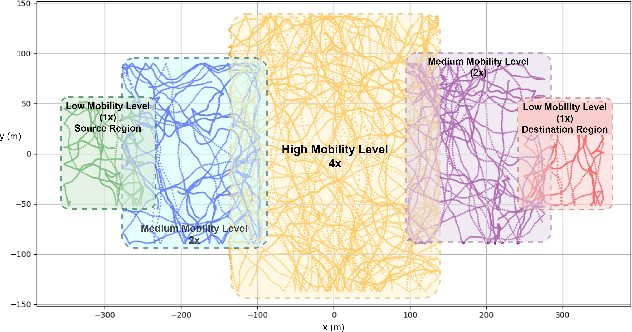
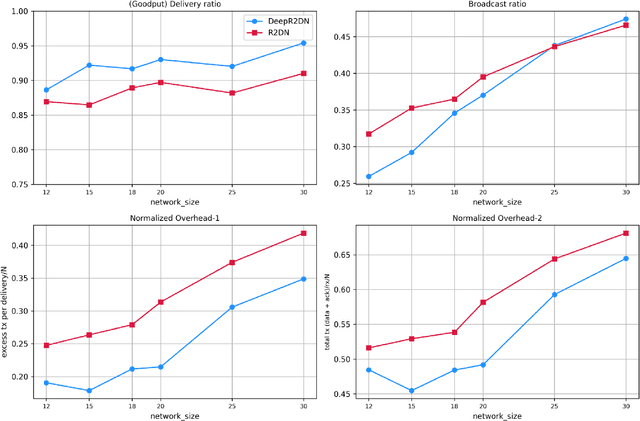

Abstract:Highly dynamic mobile ad-hoc networks (MANETs) remain as one of the most challenging environments to develop and deploy robust, efficient, and scalable routing protocols. In this paper, we present DeepCQ+ routing protocol which, in a novel manner integrates emerging multi-agent deep reinforcement learning (MADRL) techniques into existing Q-learning-based routing protocols and their variants and achieves persistently higher performance across a wide range of topology and mobility configurations. While keeping the overall protocol structure of the Q-learning-based routing protocols, DeepCQ+ replaces statically configured parameterized thresholds and hand-written rules with carefully designed MADRL agents such that no configuration of such parameters is required a priori. Extensive simulation shows that DeepCQ+ yields significantly increased end-to-end throughput with lower overhead and no apparent degradation of end-to-end delays (hop counts) compared to its Q-learning based counterparts. Qualitatively, and perhaps more significantly, DeepCQ+ maintains remarkably similar performance gains under many scenarios that it was not trained for in terms of network sizes, mobility conditions, and traffic dynamics. To the best of our knowledge, this is the first successful application of the MADRL framework for the MANET routing problem that demonstrates a high degree of scalability and robustness even under environments that are outside the trained range of scenarios. This implies that our MARL-based DeepCQ+ design solution significantly improves the performance of Q-learning based CQ+ baseline approach for comparison and increases its practicality and explainability because the real-world MANET environment will likely vary outside the trained range of MANET scenarios. Additional techniques to further increase the gains in performance and scalability are discussed.
Robust and Scalable Routing with Multi-Agent Deep Reinforcement Learning for MANETs
Jan 09, 2021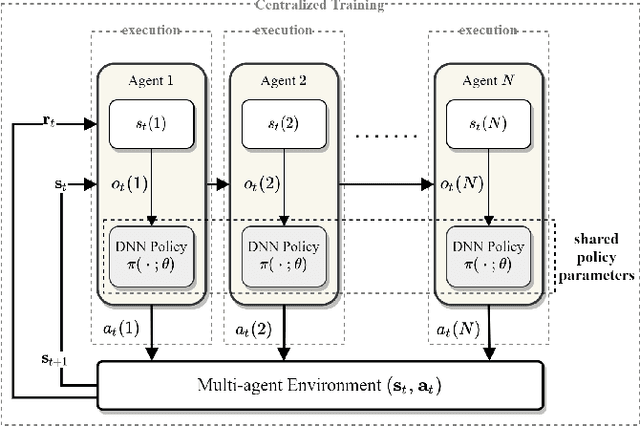
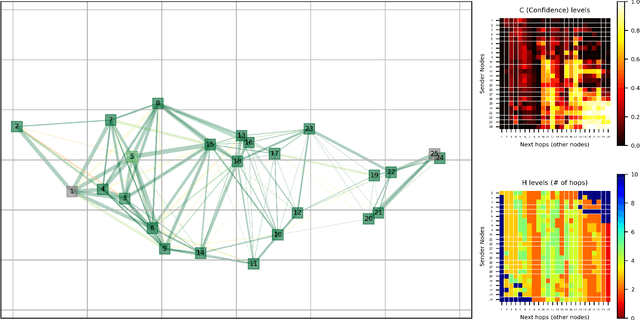
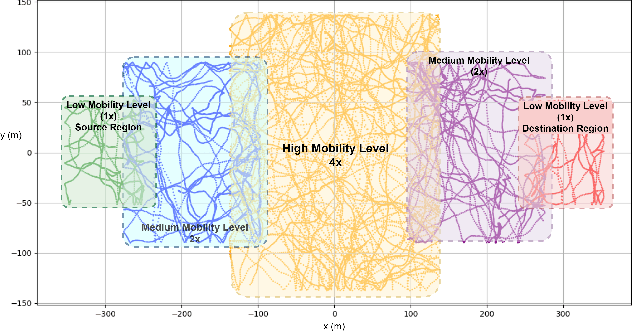
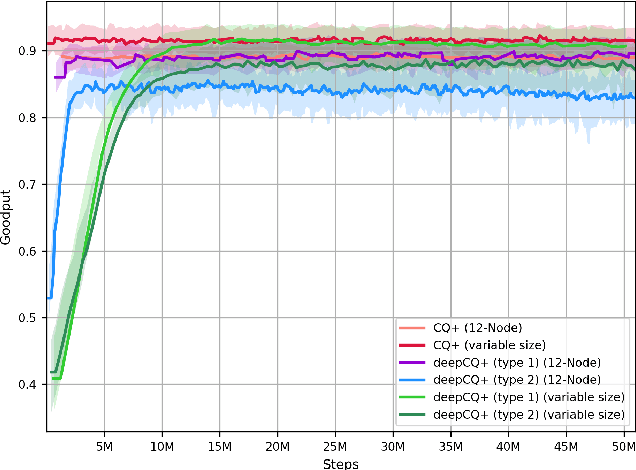
Abstract:We address the packet routing problem in highly dynamic mobile ad-hoc networks (MANETs). In the network routing problem each router chooses the next-hop(s) of each packet to deliver the packet to a destination with lower delay, higher reliability, and less overhead in the network. In this paper, we present a novel framework and routing policies, DeepCQ+ routing, using multi-agent deep reinforcement learning (MADRL) which is designed to be robust and scalable for MANETs. Unlike other deep reinforcement learning (DRL)-based routing solutions in the literature, our approach has enabled us to train over a limited range of network parameters and conditions, but achieve realistic routing policies for a much wider range of conditions including a variable number of nodes, different data flows with varying data rates and source/destination pairs, diverse mobility levels, and other dynamic topology of networks. We demonstrate the scalability, robustness, and performance enhancements obtained by DeepCQ+ routing over a recently proposed model-free and non-neural robust and reliable routing technique (i.e. CQ+ routing). DeepCQ+ routing outperforms non-DRL-based CQ+ routing in terms of overhead while maintains same goodput rate. Under a wide range of network sizes and mobility conditions, we have observed the reduction in normalized overhead of 10-15%, indicating that the DeepCQ+ routing policy delivers more packets end-to-end with less overhead used. To the best of our knowledge, this is the first successful application of MADRL for the MANET routing problem that simultaneously achieves scalability and robustness under dynamic conditions while outperforming its non-neural counterpart. More importantly, we provide a framework to design scalable and robust routing policy with any desired network performance metric of interest.
 Add to Chrome
Add to Chrome Add to Firefox
Add to Firefox Add to Edge
Add to Edge